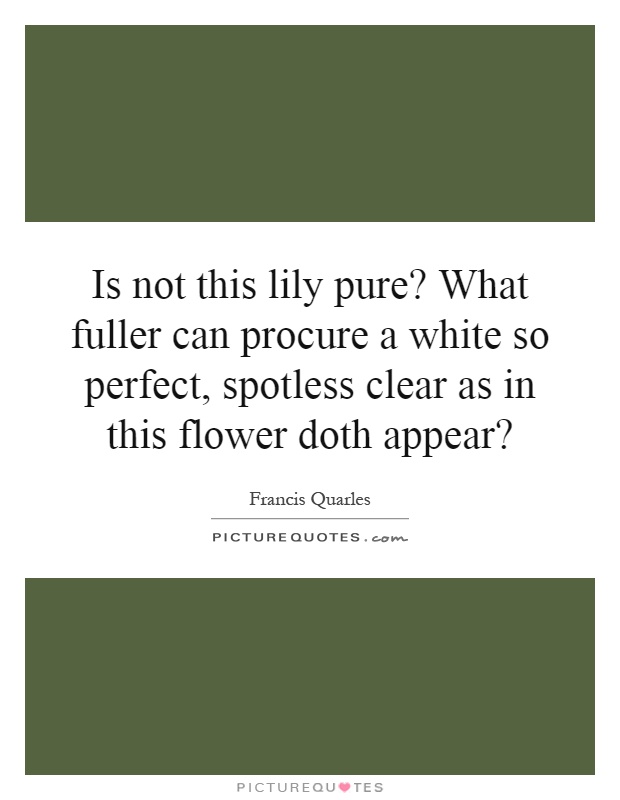Is not this lily pure? What fuller can procure a white so perfect, spotless clear as in this flower doth appear?

Is not this lily pure? What fuller can procure a white so perfect, spotless clear as in this flower doth appear?
Francis Quarles was a 17th-century English poet known for his religious and moralistic works. One of his most famous poems is "The Lily and the Rose," in which he compares the virtues of these two flowers to the virtues of women. In this context, the line "Is not this lily pure? What fuller can procure a white so perfect, spotless clear as in this flower doth appear?" takes on a deeper meaning.The lily has long been a symbol of purity and innocence in Western culture. Its white petals are often associated with the Virgin Mary and the concept of immaculate conception. In Quarles' poem, the lily represents the ideal of purity and perfection that women should strive for. The poet marvels at the flawless beauty of the lily, comparing it to the pure white garments that a fuller (a person who cleans and whitens cloth) could never achieve.
Quarles' use of the lily as a symbol of purity reflects the religious and moral themes that are prevalent in his work. He believed that true beauty and virtue come from within, and that outward appearances are not always a true reflection of a person's character. By comparing the lily to a woman, Quarles is emphasizing the importance of inner purity and goodness over superficial beauty.
The line also highlights the idea of perfection and the impossibility of achieving it. The poet acknowledges that no human effort can produce a white as perfect and spotless as that of the lily. This serves as a reminder that true perfection is unattainable and that we should strive for goodness and purity in our hearts and actions instead.












 Friendship Quotes
Friendship Quotes Love Quotes
Love Quotes Life Quotes
Life Quotes Funny Quotes
Funny Quotes Motivational Quotes
Motivational Quotes Inspirational Quotes
Inspirational Quotes